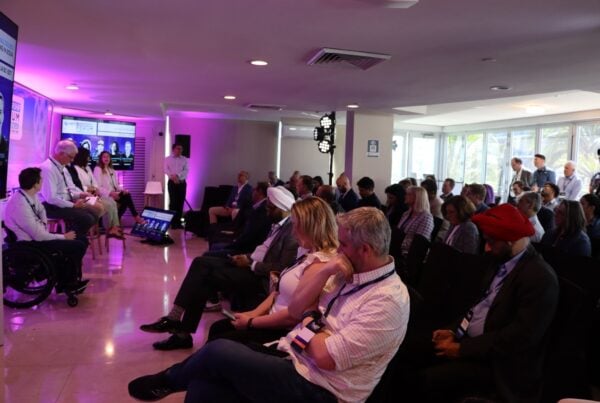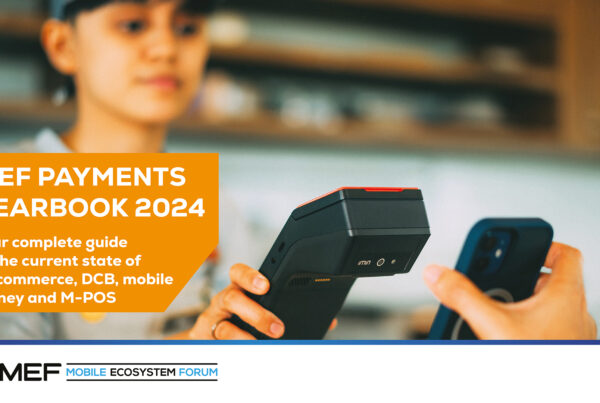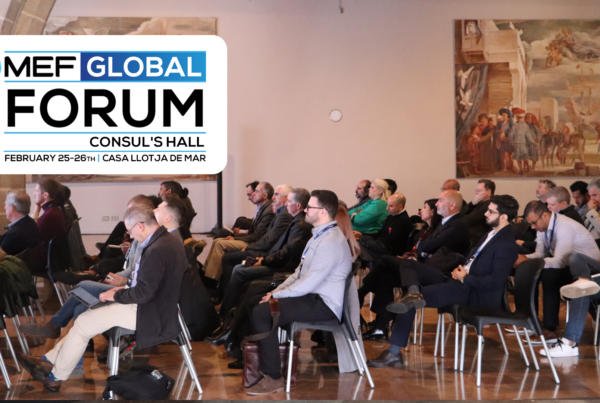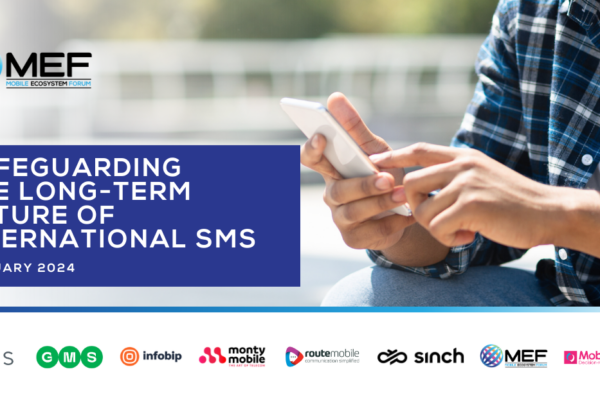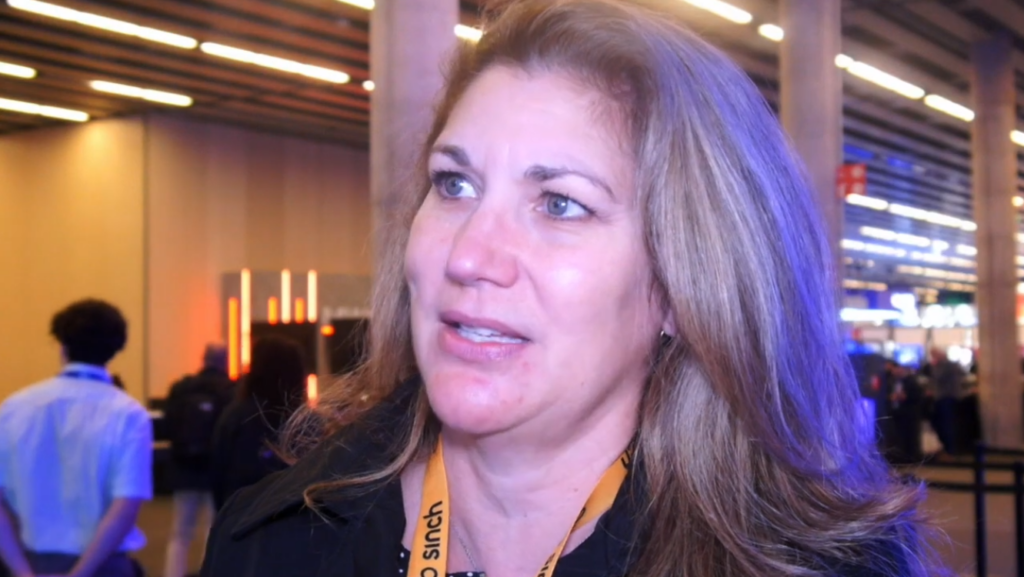MEF BUSINESS NEWS 24 APRIL 2024 The EU has launched an investigation into China’s medical device market amid rising tensions ahead of President Xi Jinping’s visit to the bloc. This follows inquiries into Chinese government support for electric-car manufacturers and scrutiny of industries like wind energy, solar, and railways. Relations between the EU and Beijing have soured over issues including manufacturing capacity, trade surplus, and China’s support for Russia’s invasion of Ukraine. ——————————- TikTok faces an urgent battle to avoid a US ban after legislation requiring its Chinese owners to divest passed through Congress. President Joe Biden plans to sign it Wednesday, triggering a 270-day countdown for a sale or a US prohibition. TikTok and ByteDance vow to challenge the measure, arguing it violates free speech rights. TikTok’s head of public policy for the Americas, Michael Beckerman, reassured staff that the fight is far from over. ——————————- Tesla is launching cheaper cars sooner than planned to boost demand amid disappointing earnings. The move, which sent shares soaring 13%, aims to revive EV demand and support ambitious projects like autonomous robotaxis. Elon Musk company’s earnings have faltered, with first-quarter automotive gross margin at 16.4%, below expectations. Adjusted earnings per share were 45 cents, missing estimates of 52 cents, with revenue falling 9% to $21.3 billion. Global vehicle inventory increased to 28 days, but Tesla assured investors that the rise is temporary. —————- Jamie Dimon, CEO of JPMorgan Chase, described the US economy as “booming” but expressed caution about a soft landing. Speaking at the Economic Club of New York, Dimon acknowledged the strength of the economy, which has defied recession fears. While optimistic about a soft landing scenario, Dimon emphasized caution. He expressed surprise at geopolitical tensions not impacting oil prices more significantly, highlighting the potential for prices to rise above $120 per barrel. ———————- Hedge fund Appaloosa along with Palomino Master and Azteca Partners, filed a lawsuit over the $17 billion loss of high-risk bonds tied to Credit Suisse Group’s rescue deal. They allege significant investment losses after UBS Group purchased Credit Suisse, resulting in the bonds being written down to zero shortly after their purchase in March 2023. They claim that Credit Suisse misrepresented its liquidity position as strong despite experiencing significant daily withdrawals. —— —— MEF MOBILE NEWS 24 APRIL 2024 Telecom Italia’s CEO, Pietro Labriola, secured another three years in his role after shareholders voted to retain him and his board slate at the company’s annual meeting. Labriola’s victory is expected to accelerate the process for the landline network’s planned sale to the US fund KKR, a crucial step in reducing the carrier’s debt. The outcome of the vote, which saw Labriola defeating challenges from investment firms Merlyn Partners and BlueBell Capital Partners, was indirectly favored by Telecom Italia’s largest investor, Vivendi, which abstained. —————— Meanwhile, European Union antitrust regulators are scrutinizing KKR’s proposed acquisition expressing concerns about potential harm to Italy’s wholesale market, Reuters reports. The deal, valued at up to €22 billion, could lead to a lengthy investigation and pressure on KKR to offer significant remedies due to worries about price hikes and competition viability. The European Commission has sent questionnaires to rivals and customers, seeking feedback by April 30. Concerns include the impact on wholesale competition, coordination risks with rival OpenFiber, and effects on business users. The Italian government plans to take a 20% stake in the network for oversight. —————— Verizon CEO Hans Vestberg emphasized the potential of AI, including generative AI (GenAI), across the network and for personalized tariffs during the Q1 earnings call. The company is leveraging AI to optimize internal processes, develop personalized recommendations for customers, and commercialize its 5G network and mobile edge compute capabilities. Despite a loss of 158,000 wireless retail post-paid phone subscribers, Verizon saw its best Q1 post-paid phone net performance since 2018, adding 90,000 in the business sector. Significant gains were also recorded in fixed wireless access (FWA) broadband and consumer broadband. Total revenue reached $32.9 billion, up 2%, with net income at $4.7 billion, down 5.9%. —————— India’s largest mobile player Jio reported over 108 million 5G subscribers by Q4 2024, with its network carrying 28% of wireless data. The company highlighted the digital services segment’s performance, driven by subscriber growth in mobile and fixed wireless services. Net profit increased by 12% to INR 55.8 billion, with higher margins. Operating revenue grew 13.3% to INR 338.4 billion, fueled by mobility and wireline subscriber growth. —————— Ukraine anticipates needing €4.38 billion over the next decade to repair its telecommunications network, which has suffered significant damage because of the Russian invasion — Euronews reports. More than 4,300 mobile base stations and a quarter of the country’s internet networks have been destroyed since February 2022, with over 30,000 km of fibre optic cables damaged or destroyed. The World Bank’s estimate of damage to the sector is $2.1 billion, but Ukraine’s plan includes capacity building in cybersecurity and other areas, raising the total needed to €4.38 billion. —— —— MEF TECH NEWS 24 APRIL 2024 Chinese Artificial Intelligence specialist SenseTime’s shares surged in early Hong Kong trading after the company unveiled its latest large-language model, SenseNova 5.0, which it claims rivals OpenAI’s GPT-4 Turbo. The shares rose by 31% before being halted midmorning. The release of SenseNova 5.0 offers hope to investors after SenseTime faced setbacks since its IPO in late 2021. The company raised over $700 million in its IPO, becoming Asia’s largest AI software firm, but has since seen declines in its stock price. ———————— China has approved a US listing for autonomous driving startup Pony.ai, potentially signaling a resurgence of Chinese tech IPOs in New York after a two-year pause. Pony.ai plans to sell up to 98 million shares on either the Nasdaq or the New York Stock Exchange. Founded in 2016, Pony.ai operates self-driving fleets in the US and China, with its main hub in Fremont, California. It is backed by investors including Toyota Motor Corp. and Saudi Arabia’s Neom, with a valuation of $8.5 billion based on its last funding round. ———————— Rubrik, the cloud and data security startup backed by Microsoft, has received about 20 times more orders for its planned IPO than there are available shares. The company is set to raise up to $713 million in the IPO by selling 23 million shares at $28 to $31 each. This oversubscription level is similar to that seen with digital marketing software firm Ibotta Inc.’s recent IPO on the New York Stock Exchange. ———————— Spotify achieved its largest quarterly profit in its 18-year history, reporting a net income of €197 million on €3.6 billion in revenue for the first quarter of the year. However, its austerity measures, including reduced marketing spending, impacted user growth, with monthly active users reaching 615 million, below the forecasted 618 million. The company added 3 million paying subscribers to reach a total of 239 million, in line with expectations. CEO Daniel Ek acknowledged the impact of reduced marketing spending and indicated corrective measures are underway. —————— Marc Tessier-Lavigne, former Stanford University president, has been appointed as the CEO of Xaira Therapeutics, a drug development startup with $1 billion in funding from major Silicon Valley firms. The company aims to leverage artificial intelligence for drug discovery. Tessier-Lavigne’s tenure at Stanford was overshadowed by controversy over research data, but no evidence of wrongdoing was found. He will take a leave of absence from Stanford for his new role. —— ——
MEF BUSINESS NEWS 24 APRIL 2024 The EU has launched an investigation into China’s medical device market amid rising tensions ahead of President Xi Jinping’s visit to the bloc. This follows inquiries into Chinese government support for electric-car manufacturers and scrutiny of industries like wind energy, solar, and railways. Relations between the EU and Beijing have soured over issues including manufacturing capacity, trade surplus, and China’s support for Russia’s invasion of Ukraine. ——————————- TikTok faces an urgent battle to avoid a US ban after legislation requiring its Chinese owners to divest passed through Congress. President Joe Biden plans to sign it Wednesday, triggering a 270-day countdown for a sale or a US prohibition. TikTok and ByteDance vow to challenge the measure, arguing it violates free speech rights. TikTok’s head of public policy for the Americas, Michael Beckerman, reassured staff that the fight is far from over. ——————————- Tesla is launching cheaper cars sooner than planned to boost demand amid disappointing earnings. The move, which sent shares soaring 13%, aims to revive EV demand and support ambitious projects like autonomous robotaxis. Elon Musk company’s earnings have faltered, with first-quarter automotive gross margin at 16.4%, below expectations. Adjusted earnings per share were 45 cents, missing estimates of 52 cents, with revenue falling 9% to $21.3 billion. Global vehicle inventory increased to 28 days, but Tesla assured investors that the rise is temporary. —————- Jamie Dimon, CEO of JPMorgan Chase, described the US economy as “booming” but expressed caution about a soft landing. Speaking at the Economic Club of New York, Dimon acknowledged the strength of the economy, which has defied recession fears. While optimistic about a soft landing scenario, Dimon emphasized caution. He expressed surprise at geopolitical tensions not impacting oil prices more significantly, highlighting the potential for prices to rise above $120 per barrel. ———————- Hedge fund Appaloosa along with Palomino Master and Azteca Partners, filed a lawsuit over the $17 billion loss of high-risk bonds tied to Credit Suisse Group’s rescue deal. They allege significant investment losses after UBS Group purchased Credit Suisse, resulting in the bonds being written down to zero shortly after their purchase in March 2023. They claim that Credit Suisse misrepresented its liquidity position as strong despite experiencing significant daily withdrawals. —— —— MEF MOBILE NEWS 24 APRIL 2024 Telecom Italia’s CEO, Pietro Labriola, secured another three years in his role after shareholders voted to retain him and his board slate at the company’s annual meeting. Labriola’s victory is expected to accelerate the process for the landline network’s planned sale to the US fund KKR, a crucial step in reducing the carrier’s debt. The outcome of the vote, which saw Labriola defeating challenges from investment firms Merlyn Partners and BlueBell Capital Partners, was indirectly favored by Telecom Italia’s largest investor, Vivendi, which abstained. —————— Meanwhile, European Union antitrust regulators are scrutinizing KKR’s proposed acquisition expressing concerns about potential harm to Italy’s wholesale market, Reuters reports. The deal, valued at up to €22 billion, could lead to a lengthy investigation and pressure on KKR to offer significant remedies due to worries about price hikes and competition viability. The European Commission has sent questionnaires to rivals and customers, seeking feedback by April 30. Concerns include the impact on wholesale competition, coordination risks with rival OpenFiber, and effects on business users. The Italian government plans to take a 20% stake in the network for oversight. —————— Verizon CEO Hans Vestberg emphasized the potential of AI, including generative AI (GenAI), across the network and for personalized tariffs during the Q1 earnings call. The company is leveraging AI to optimize internal processes, develop personalized recommendations for customers, and commercialize its 5G network and mobile edge compute capabilities. Despite a loss of 158,000 wireless retail post-paid phone subscribers, Verizon saw its best Q1 post-paid phone net performance since 2018, adding 90,000 in the business sector. Significant gains were also recorded in fixed wireless access (FWA) broadband and consumer broadband. Total revenue reached $32.9 billion, up 2%, with net income at $4.7 billion, down 5.9%. —————— India’s largest mobile player Jio reported over 108 million 5G subscribers by Q4 2024, with its network carrying 28% of wireless data. The company highlighted the digital services segment’s performance, driven by subscriber growth in mobile and fixed wireless services. Net profit increased by 12% to INR 55.8 billion, with higher margins. Operating revenue grew 13.3% to INR 338.4 billion, fueled by mobility and wireline subscriber growth. —————— Ukraine anticipates needing €4.38 billion over the next decade to repair its telecommunications network, which has suffered significant damage because of the Russian invasion — Euronews reports. More than 4,300 mobile base stations and a quarter of the country’s internet networks have been destroyed since February 2022, with over 30,000 km of fibre optic cables damaged or destroyed. The World Bank’s estimate of damage to the sector is $2.1 billion, but Ukraine’s plan includes capacity building in cybersecurity and other areas, raising the total needed to €4.38 billion. —— —— MEF TECH NEWS 24 APRIL 2024 Chinese Artificial Intelligence specialist SenseTime’s shares surged in early Hong Kong trading after the company unveiled its latest large-language model, SenseNova 5.0, which it claims rivals OpenAI’s GPT-4 Turbo. The shares rose by 31% before being halted midmorning. The release of SenseNova 5.0 offers hope to investors after SenseTime faced setbacks since its IPO in late 2021. The company raised over $700 million in its IPO, becoming Asia’s largest AI software firm, but has since seen declines in its stock price. ———————— China has approved a US listing for autonomous driving startup Pony.ai, potentially signaling a resurgence of Chinese tech IPOs in New York after a two-year pause. Pony.ai plans to sell up to 98 million shares on either the Nasdaq or the New York Stock Exchange. Founded in 2016, Pony.ai operates self-driving fleets in the US and China, with its main hub in Fremont, California. It is backed by investors including Toyota Motor Corp. and Saudi Arabia’s Neom, with a valuation of $8.5 billion based on its last funding round. ———————— Rubrik, the cloud and data security startup backed by Microsoft, has received about 20 times more orders for its planned IPO than there are available shares. The company is set to raise up to $713 million in the IPO by selling 23 million shares at $28 to $31 each. This oversubscription level is similar to that seen with digital marketing software firm Ibotta Inc.’s recent IPO on the New York Stock Exchange. ———————— Spotify achieved its largest quarterly profit in its 18-year history, reporting a net income of €197 million on €3.6 billion in revenue for the first quarter of the year. However, its austerity measures, including reduced marketing spending, impacted user growth, with monthly active users reaching 615 million, below the forecasted 618 million. The company added 3 million paying subscribers to reach a total of 239 million, in line with expectations. CEO Daniel Ek acknowledged the impact of reduced marketing spending and indicated corrective measures are underway. —————— Marc Tessier-Lavigne, former Stanford University president, has been appointed as the CEO of Xaira Therapeutics, a drug development startup with $1 billion in funding from major Silicon Valley firms. The company aims to leverage artificial intelligence for drug discovery. Tessier-Lavigne’s tenure at Stanford was overshadowed by controversy over research data, but no evidence of wrongdoing was found. He will take a leave of absence from Stanford for his new role. —— ——


















